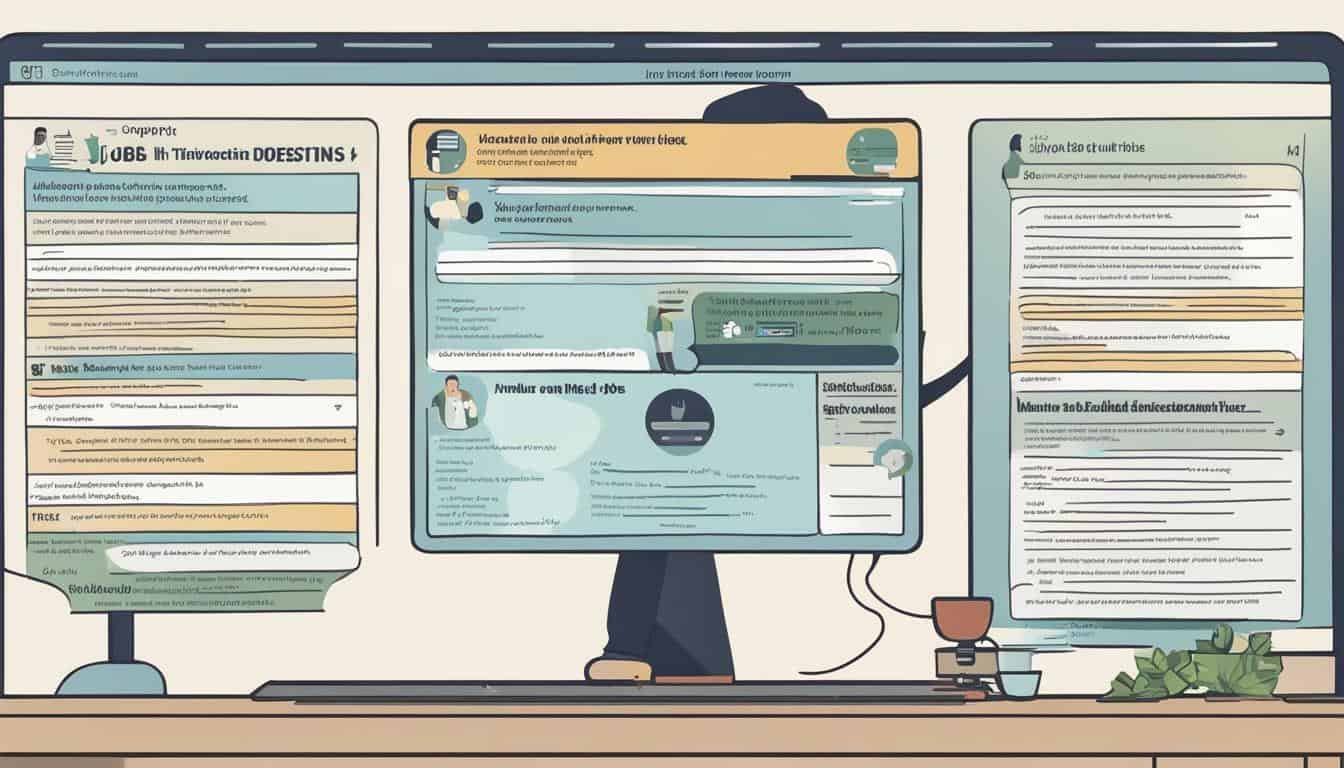Are you interested in a career in healthcare that involves hands-on work with patients and cutting-edge technology? Have you considered becoming an anesthesia technician, also known as an anesthesia tech?
As an anesthesia technician, you will play a crucial role in the surgical team, working alongside anesthesiologists and nurses to prepare and maintain anesthesia equipment and supplies. You will ensure that patients receive the best possible care and experience during surgical procedures.
But being an anesthesia tech is more than just a job. It’s a career with opportunities for growth, professional development, and personal fulfillment.
Read on to discover how becoming a certified anesthesia technician can enhance your career and make a difference in the lives of patients.
Key Takeaways
- Becoming an anesthesia technician allows for hands-on work with patients and cutting-edge technology.
- A career as an anesthesia tech offers opportunities for growth, professional development, and personal fulfillment.
- Certification as a anesthesia technician is important and can lead to greater career advancement.
What Does an Anesthesia Technician Do?
If you’re considering becoming an anesthesia technician, it’s essential to have a solid understanding of what the job entails. An anesthesia technician is a crucial member of the healthcare team in surgical settings, responsible for preparing and maintaining anesthesia equipment and supplies before, during, and after surgical procedures. Anesthesia equipment includes various devices such as ventilators, monitors, and anesthesia machines, while anesthesia supplies consist of syringes, vials, and other essential materials.
Anesthesia technicians work alongside anesthesiologists and other healthcare professionals to ensure that surgical patients receive the correct type and amount of anesthesia. Anesthesia technicians are responsible for setting up equipment, checking its functioning, and ensuring that it is in optimal condition. During surgery, they monitor patients’ vital signs and anesthesia levels, and make adjustments as necessary.
Post-surgery, anesthesia technicians are responsible for cleaning, sterilizing, and restocking equipment and supplies. They also maintain records of medications and equipment used during surgery.
Becoming a Certified Anesthesia Technician
Are you considering a career as an anesthesia technician? One of the most essential steps you can take toward a successful career as an anesthesia technician is obtaining certification. Becoming a certified anesthesia technician demonstrates your dedication and proficiency to potential employers, patients, and colleagues.
| Requirements for Certification | Benefits of Certification |
|---|---|
|
|
There are several anesthesia technician training programs available across the United States that can help prepare you for certification. These programs typically include classroom instruction, clinical training, and hands-on experience working with anesthesia equipment and supplies. Additionally, some programs may offer exam preparation courses or study materials.
Once you have completed your training program and gained sufficient experience, you can take the Cer.A.T. exam to become a certified anesthesia technician. The exam covers anatomy and physiology, pharmacology, anesthesia equipment and technology, and patient care.
Continuing education and training is also essential to maintaining your certification and staying up-to-date with advancements in anesthesia technology and safety guidelines. Many professional organizations offer continuing education courses and conferences that can help you expand your knowledge and skills as an anesthesia technician.
Overall, obtaining certification as an anesthesia technician is a crucial step in advancing your career and ensuring the highest level of patient care. With dedication and hard work, you can achieve certification and take your career to the next level.
Anesthesia Technology Advancements
As an anesthesia technician, staying current with the latest technology in the field is essential. Advancements in anesthesia technology have improved patient comfort and outcomes, as well as increased efficiency in delivering anesthesia.
One major development has been the use of electronic medical records (EMRs) to track patient information and monitor anesthesia equipment. This has led to greater accuracy and reliability in recording patient history, vital signs, and medications administered during surgery.
Another significant development is the use of ultrasound to guide nerve blocks and regional anesthesia. This technology allows for more precise administration of anesthesia and decreased risk of complications. Additionally, anesthesia machines have evolved with features such as closed-loop systems, which use algorithms to adjust anesthesia delivery based on real-time patient data.
The field of anesthesia technology continues to advance, with ongoing research and development in areas such as virtual reality training and artificial intelligence to improve decision-making during surgery. As an anesthesia technician, it is important to stay informed and adapt to new technology to provide the best possible care for patients.
Ensuring Anesthesia Safety
As an anesthesia technician, you play a crucial role in ensuring patient safety during surgical procedures. Following anesthesia guidelines and protocols is essential in providing the best possible care for patients.
One of your primary responsibilities is to assist in the preparation and maintenance of anesthesia equipment and supplies. This includes monitoring and testing equipment to ensure it is functioning correctly and properly sterilizing equipment before and after use.
Additionally, you should be well-versed in the latest anesthesia safety measures and be able to identify potential risks or complications during procedures. Your ability to communicate effectively with the anesthesia provider and the surgical team is paramount to patient safety.
By adhering to anesthesia guidelines and protocols, you help to minimize the risk of adverse reactions or complications, and contribute to better patient outcomes.
Career Opportunities for Anesthesia Technicians
As an anesthesia technician, you have many career opportunities available to you, with the potential for growth and advancement throughout your career. One option is to specialize in a particular area of anesthesia technology, such as pediatric or cardiac anesthesia. By doing so, you can become an anesthesia specialist, providing expert guidance and support in your chosen field.
Another option is to seek out leadership positions within your workplace, such as becoming a supervisor or manager of your anesthesia department. This can allow you to apply your expertise to help train and mentor new anesthesia technicians and guide the overall direction of your organization.
In addition, as you gain experience and knowledge within the field, you may also have the opportunity to advance into other healthcare roles, such as becoming a physician assistant or nurse anesthetist. These roles require additional education and training, but can offer even greater opportunities and responsibilities within the healthcare industry.
No matter which career path you choose, the demand for skilled anesthesia technicians continues to grow, providing you with excellent job security and the potential for a fulfilling, long-term career.
Developing Skills as an Anesthesia Technician
As an anesthesia technician, you play a critical role in supporting the anesthesia care team. To excel in this field, you need to possess a range of skills and competencies.
First and foremost, communication is essential. You’ll be working closely with other healthcare professionals, including anesthesiologists and nurses, so being able to communicate effectively and work collaboratively is key. Additionally, attention to detail is crucial, as small errors in anesthesia preparation and equipment setup can have serious consequences for patients.
Technical proficiency is also essential. You’ll be responsible for preparing and maintaining anesthesia equipment and supplies, so having a solid understanding of anesthesia technology is a must. As such, ongoing anesthesia training is critical to keep your skills sharp and up-to-date with the latest industry advancements.
But technical skills alone are not enough. Patient care is at the heart of anesthesia technology, so having a compassionate and caring demeanor is essential. You’ll be working with patients who are often anxious or scared, so being able to provide reassurance and comfort is an important part of your role.
In summary, developing skills as an anesthesia technician requires a mix of technical proficiency, attention to detail, effective communication, and compassion for patients. By honing these skills through dedicated anesthesia training and practice, you can become an invaluable member of the anesthesia care team and advance your career as an anesthesia technician.
Becoming a Certified Anesthesia Technician
If you want to take your career as an anesthesia technician to the next level, becoming a certified anesthesia technician is highly recommended. Certification is a way to demonstrate your expertise and commitment to your profession, making you a valuable asset to any healthcare team.
To become a certified anesthesia technician, you will need to complete an accredited anesthesia technology program. These programs typically take 1-2 years to complete and provide you with the necessary knowledge and skills to succeed in your role. You will also need to pass a certification exam administered by the American Society of Anesthesia Technologists and Technicians (ASATT).
Continuing education is also essential for maintaining your certification and staying current in your field. ASATT offers various training opportunities, including online courses, conferences, and workshops that can help you stay up-to-date with the latest developments in the field.
Remember, becoming a certified anesthesia technician is a significant investment in your career. It can unlock new opportunities and lead to greater job satisfaction and job security. Take the time to research and find the right anesthesia technology program for you and commit to lifelong learning to ensure your continued success.
Elevate Your Career as an Anesthesia Technician
Are you ready to take your career as an anesthesia technician to the next level? With the demand for healthcare professionals on the rise, now is the perfect time to explore the possibilities and opportunities available to anesthesia techs. As an anesthesia technician, you’ll have the chance to work alongside anesthesiologists and other healthcare practitioners, providing essential support and assistance during surgical procedures. From preparing and maintaining anesthesia equipment and supplies to ensuring patient safety and comfort, your role is essential to the success of each surgical procedure. With the right training and certification, you can also move up the career ladder as an anesthesia specialist. This includes opportunities for specialization in areas such as pediatric anesthesia, cardiac anesthesia, and neurosurgical anesthesia. Specialization can provide more career opportunities and higher pay, allowing you to take your career to the next level. To succeed as an anesthesia technician, you must possess essential skills such as attention to detail, excellent communication, and technical proficiency. These skills can be developed and honed through ongoing education and training opportunities. Continuously improving your skills can also open up opportunities for career advancement. In summary, becoming an anesthesia technician can be a rewarding and satisfying career choice. With the potential for career advancement and the opportunity for specialization, the possibilities are endless. So why wait? Start your journey as an anesthesia tech today and elevate your career to new heights.Are Storyboarding Skills Useful for an Anesthesia Technician Career?
Storyboarding skills can be highly useful for an anesthesia technician career. Being able to visualize and plan complex medical procedures using a storyboard allows technicians to develop a structured approach to patient care. Knowing how to create a storyboard enhances critical thinking abilities, improves communication within the healthcare team, and ensures a smooth flow of tasks during surgeries or medical interventions.
How Can Becoming a Biomedical Equipment Technician Help Enhance My Career as an Anesthesia Technician?
Becoming a biomedical equipment technician can open up a plethora of opportunities for anesthesia technicians. By acquiring the skills and knowledge required in this field, you can enhance your career as an anesthesia technician. With expertise in maintaining and repairing medical devices, you can play a crucial role in ensuring that the anesthesia equipment is functioning optimally, leading to improved patient care and surgical outcomes. Grabbing biomedical equipment technician opportunities can indeed be a game-changer for anesthesia technicians seeking professional growth.
FAQ
Q: What are the benefits of becoming an anesthesia technician?
A: Becoming an anesthesia technician offers numerous benefits, including opportunities for career growth and professional development. As an anesthesia technician, you can make a meaningful impact on patient care and be an essential part of the healthcare team.
Q: What does an anesthesia technician do?
A: Anesthesia technicians are responsible for preparing and maintaining anesthesia equipment and supplies. They assist anesthesiologists and nurse anesthetists in the operating room, ensuring that all necessary equipment is functioning properly and ready for use during surgical procedures.
Q: How do I become a certified anesthesia technician?
A: To become a certified anesthesia technician, you will need to complete a specialized training program in anesthesia technology. These programs typically include both classroom instruction and hands-on clinical experience. After completing your training, you can then apply for certification through a recognized certifying organization.
Q: What are the latest advancements in anesthesia technology?
A: Anesthesia technology is constantly evolving, with new advancements being made to improve patient care and safety. Some of the recent advancements include the development of more advanced monitoring equipment, improved drug delivery systems, and the use of electronic medical records to track patient data.
Q: How do anesthesia technicians ensure patient safety?
A: Anesthesia technicians play a critical role in ensuring patient safety during surgical procedures. They adhere to anesthesia guidelines and protocols, monitor patients closely during anesthesia administration, and promptly report any changes or concerns to the anesthesia team.
Q: What career opportunities are available for anesthesia technicians?
A: Anesthesia technicians have a range of career opportunities available to them. They can specialize in areas such as pediatric anesthesia, cardiac anesthesia, or pain management. There is also potential for advancement into roles such as anesthesia technologist or anesthesia specialist.
Q: What skills are important for anesthesia technicians?
A: Anesthesia technicians should possess strong communication skills, as they often need to interact with patients, healthcare professionals, and equipment vendors. Attention to detail is crucial for ensuring accuracy in equipment setup and patient monitoring. Technical proficiency in operating and maintaining anesthesia equipment is also essential.
Q: How can I further my career as an anesthesia technician?
A: Continuing education and training opportunities are crucial for furthering your career as an anesthesia technician. You can participate in workshops, conferences, and online courses to expand your knowledge and skills. Pursuing advanced certifications or degrees in anesthesia technology can also open up new career opportunities.
Q: How can becoming an anesthesia technician elevate my career?
A: Becoming an anesthesia technician can be a stepping stone to a rewarding and fulfilling career in the healthcare industry. With opportunities for career growth, specialization, and advancement, you can elevate your career as an anesthesia technician and make a lasting impact in patient care.




0 Comments